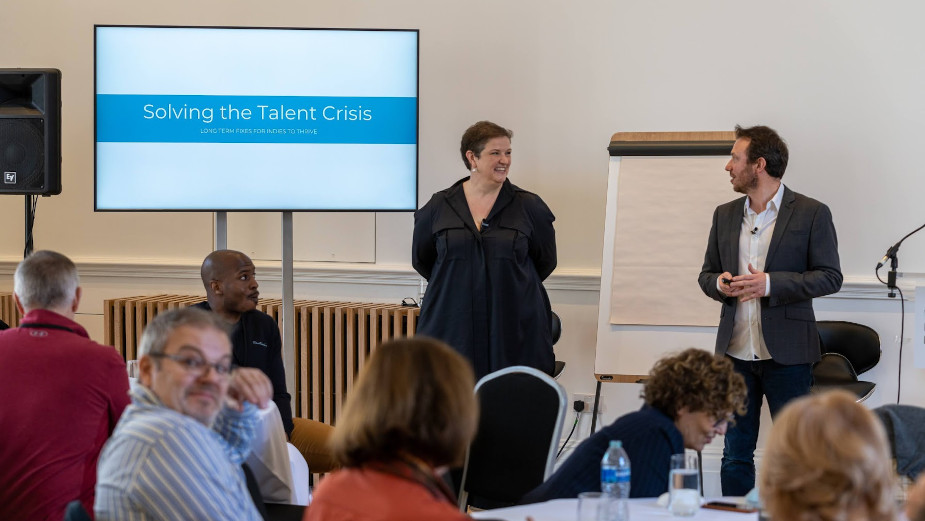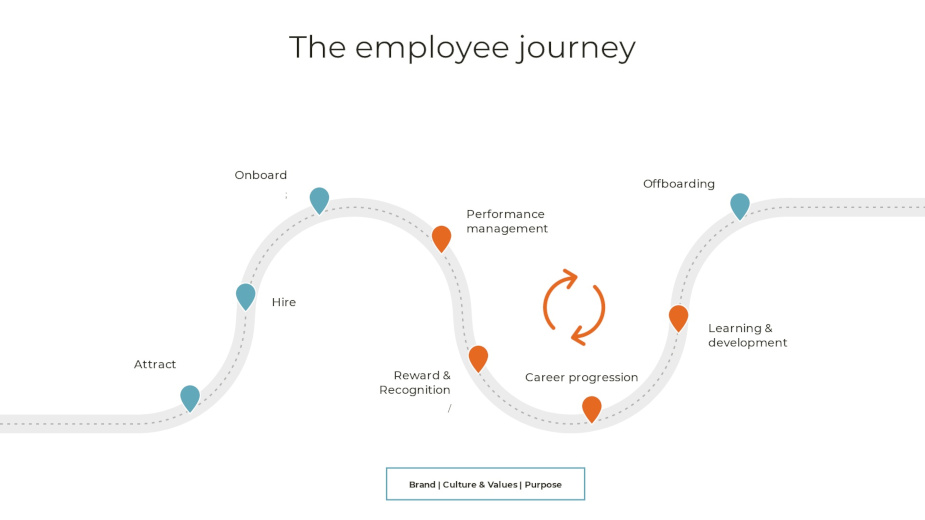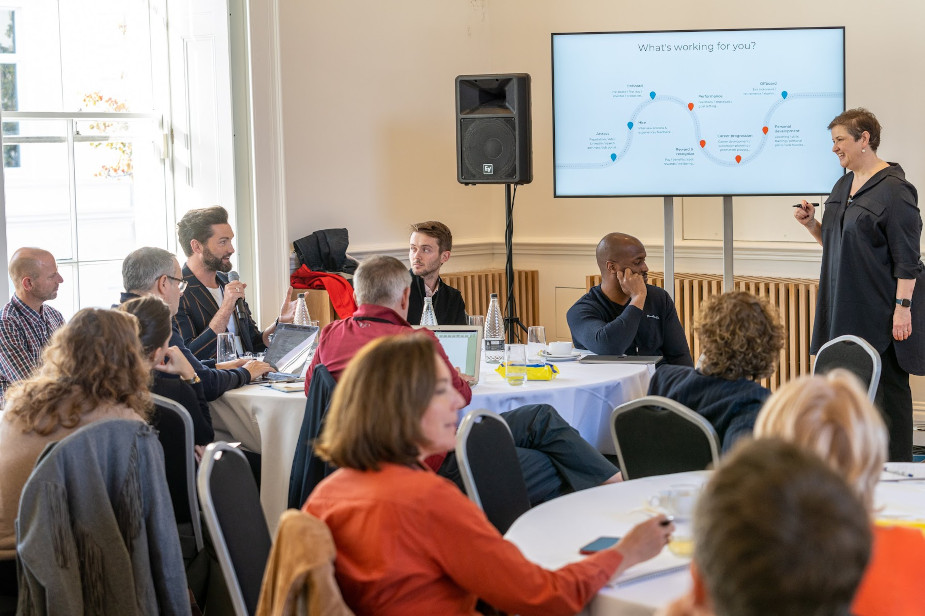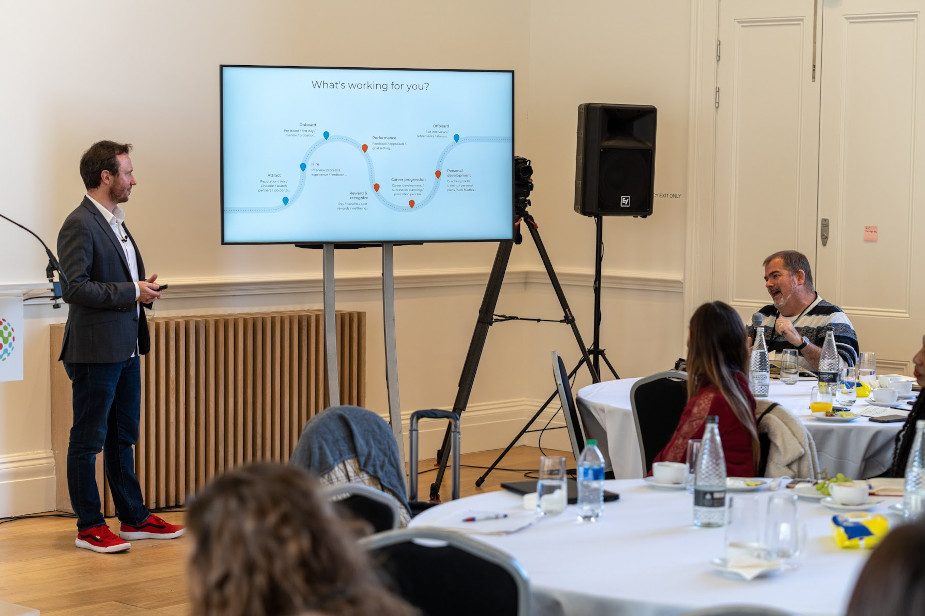
Navigating the Talent Crunch: What’s Working?

The first time you heard the phrases ‘The Great Resignation’ or ‘The Big Quit’ you could be forgiven for dismissing it as scaremongering. But what started as American buzzwordery is rapidly revealing itself to be a reality around the world, as business leaders begin to notice the pandemic-provoked exodus of talent out of various industries. Nearly 1.2m jobs were open in the UK in the most recent quarter, with 15 of 18 sectors reporting record numbers. And listening to the international gathering of agencies at the Worldwide Partners EMEA Summit last week, leaders are paying particular attention to retaining and attracting talent across the globe.
That sounds intimidating to anyone running a business. But in the talent-focused workshop run by Robin Bonn and Lucy Goode, the tone was proactive and optimistic rather than mopey and doom mongering.
To kick off, Robin, the founder of Co:definery, and Lucy, a consultant advising agency leaders on people strategy, acknowledged the concerning headlines that abound right now. But their message from the start was not “solving the talent crisis” but “winning the talent opportunity”. This was all about empowering the agencies in Worldwide Partners to share good practice and encourage one another to succeed in attracting, retaining and growing talent.
Worldwide Partners (WPI) is a global network of owner-led, marketing services agencies who share an independent spirit and entrepreneurial drive, so the room was full of agency leaders hailing from Belfast to Athens keen to ensure they navigate this issue and share intelligence.
Lucy and Robin first shared some broad principles to stimulate thought. Sometimes ideas are clichés for a reason, Lucy noted, which is certainly true of the need for adaptability 2020 and 2021 have demanded of agencies. That’s as true in the talent sphere as anywhere else. But adaptation is easier, she noted, when your business knows what it stands for. Most creative agencies now focus on the brand value a good customer experience adds. That applies to an agency as a service provider too. Agencies know they need to think about their own CX in order to help their clients best. But if a business wants to attract and retain the best talent, it needs to take care of its employee experience too.
Getting a handle on what your business’ EX is could be the catalyst that allows you to win this ‘talent opportunity’ in 2022 and beyond, Robin and Lucy suggested. And the independent agencies in the room last week have the power to seize this opportunity, if they listen to what people in their businesses have to say.
As a framework, Lucy shared an elegant diagram of how she sees EX - a series of different touchpoints between employer and employee, with factors to consider at each stage in the journey, from job posting to offboarding and succession planning.

After a short rundown of these considerations, the open nature of the WPI EMEA Summit came into its own, as the agency leaders in the room shared practice that’s working for them at various points on this employee experience journey.
Here’s a short selection of helpful ideas shared:
- Rewriting job postings with more of a focus on “selling jobs to applicants”, removing words like ‘requirements’ in favour of ‘opportunities’. In this employee’s job market, a change of tone is required to highlight what a role can offer an applicant, rather than the other way round. And that needs to go way beyond salary alone.
- Being upfront with applicants about the values of a business rather than just what the role entails. Demonstrate those values throughout the recruitment process, maybe by introducing a variety of colleagues at interview stage or giving an in-depth tour of the office. If physical spaces aren’t part of the process, try to create digital space to see what kind of person works there. As Lucy put it. “values are lived through behaviour”, so let job applicants see how your company behaves.
- Even if using headhunters/recruitment services, contacting applicants directly as an employer. One agency owner mentioned reaching out to people as they go through the recruitment process, saying they’re looking forward to meeting them - a simple act of friendliness that goes a long way.
- Practicing ‘preboarding’ so that staff hear about new starters before their first day.
- Partnering each new employee with a ‘buddy’ who can be responsible for making them feel welcome, taking them for lunch and being there to answer any questions.
- With increasingly distributed workforces, creating safe ways for employees to get to know each other and feel like a community.
- Building further community by allowing junior and mid-level employees to present work they’re proud of to colleagues. That way everyone can have more of a sense of what’s going on within the business, even in areas that rarely involve them.
- Scheduling ‘vision meetings’ rather than performance reviews, where all employees have a chance to speak to leadership about their aspirations and how they can realise those within the company. Another agency leader shared a version of this that involved interviewing existing employees, asking “what do you need to ensure you stay?”

The next section of the workshop focused on one of the obvious drivers of ‘The Great Resignation’ - stress. Lucy laid the foundation for discussion with more insights, including “the opposite of stress is not being stressed” (not, as you might guess, wellbeing), and the definition of work stress as “the adverse reaction people have to excessive pressures and demands placed on them”, according to the HSE.
She then moved on to another framework for discussion - laying out how reducing stress in a workforce comes at three stages: prevention, protection and repair.
Considering these three columns, the leaders in the room shared a variety of techniques that have helped them in each, with emphasis on the prevention and protection stages.
Here are some of the stress-reducing suggestions shared:
- Providing people with leadership coaching as they get promoted and begin managing a team. This is a stage where many people take on new responsibilities without training for them and this can be a cause of stress in both managers and employees.
- As a leader, looking after your own mental health first. As one WPI partner said, it’s like the advice on flights that you should make sure your own oxygen mask is secure before helping others.
- For some people, cognitive behavioral therapy and positive reframing can provide tools for maintaining mental wellbeing.
- Normalising and making counselling services available to employees, removing stigma around mental health.
- Leading by example when it comes to mental wellbeing. Ensure that as a leader you are demonstrating a healthy attitude to work-life balance. Emailing late at night can cause anxiety for employees that this is also expected of them. As Robin emphasised, “make sure you start by protecting yourselves” from stress.
- (A wildcard suggestion maybe): Focusing on your children or getting a pet. Responsibilities that you need to attend to outside of work force you to make space where work is not the priority, giving you a chance to enter a different headspace.
- As a leader, designing your job around what you want to focus on - the parts of the business that most invigorate you - and delegating the rest. This can also help with succession planning, as parts of your job will become others’ responsibility.
- Designating certain times in the week or day when internal emailing, calls and pinging of all kinds is banned. That way everyone has a chance to focus on what is most important to them in their role.
- Setting boundaries with clients so that staff don’t feel obligated to work beyond what is expected.

Reflecting on the session, Robin Bonn said: “The language around the so-called 'talent crisis' isn't helpful. Of course there’s competition for great people, but there’s still a 'talent opportunity'. Rather than feeling the burden of some vast unwinnable war, agency leaders should focus on succeeding at very winnable individual moments.
“Just as Customer Experience is THE modern battleground for brands, the same drivers are impacting the agency market. There's too many of them, they say the same things and it's easy for clients to switch between them. So it stands to reason that differentiation must extend from what the agency says into what it does. And a differentiated Employee Experience is a great case in point.”
Lucy Goode concluded: “Stress can't be avoided in agencies. Pitching is a great example. And interventions that help people manage it are to be applauded. But there’s an opportunity to think differently - to focus on prevention rather than cure. No amount of mindfulness training is going to compensate for an unreasonable workload, lack of resources and support, a lack of role clarity or a feeling that you’re not learning anything.
“Addressing these issues not only tackles stress at its source, but it also speaks directly to hiring and retention. Great EX starts with understanding motivations and ambitions, tailoring packages and development plans to the individual, and making sure they’re recognized for their contribution. In other words, give people every reason to want to stay with you.”













